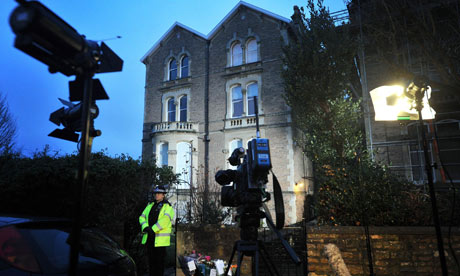Yeates murder: There is no excuse for the wholly unbalanced media reporting
Media lynching of an 'ideal suspect' is not unusual but attacks on Chris Jefferies' reputation are defamatory and break PCC code

The murder of Joanna Yeates over Christmas has, understandably, attracted massive media coverage. Professor David Wilson, of Birmingham City University told the Guardian that as far as the media was concerned, Ms Yeates – white, female and professional – was an "ideal victim". "Yeates's professional and personal life immediately had resonance with people watching television or reading newspapers." Unfortunately, her landlord, Mr Chris Jeffries, seems to have been the "ideal suspect".
On his arrest, the media seized upon his background and appearance to make their views about him clear. The Sun, the Daily Mail and the Daily Mirror have described him, respectively, as "Professor Strange", "The Strange Mr Jefferies" and a "suspect peeping Tom". The Enemies of Reason blog summarises the coverage as follows:
"His photograph has appeared on the front page of national newspapers 11 times. He was described as "weird", "lewd", "strange", "creepy", "angry", "odd", "disturbing", "eccentric", "a loner" and "unusual" in the course of just one article.That the former English teacher should have liked the classic Oscar Wilde poem The Ballad of Reading Gaol was described by one article as "Chris Jefferies' favourite poem was about killing wife". That the teacher should have taught pupils about the horror of the Holocaust and a classic novel by Wilkie Collins was described as him being "obsessed with death".
He was accused of being a 'peeping tom' by people who never made a complaint to police about his activities. One front-page headline asked of the landlord "Could this man hold the key to Joanna's death?" and the next day asked "Was Jo's body hidden next to her flat?" next to a picture of him".
"We need to avoid a situation where trials cannot take place or are prejudiced as a result of irrelevant or improper material being published, whether in print form or on the internet, in such a way that a trial becomes impossible".
This was all before Mr Jeffries was released by the police without charge after being questioned for an extended period. The combination of the "ideal victim" and the apparently eccentric suspect is a powerfully poisonous combination which has led to wholly unbalanced media reporting. Prejudice to a fair trial is only one issue in cases of this type. There has been large scale media intrusion into Mr Jeffries' private life and sustained defamatory attacks on his reputation.
It is difficult to see how any of this is properly justified as part of the reporting of a murder investigation. "Enemies of Reason" puts the point well,
"There are arguments about the public interest when it comes to a murder case; there are counter arguments about speculation and lurid intrusion into anyone's private life, especially when they haven't been charged with any crime.It's clear that Jefferies' character and lifestyle has come under huge scrutiny and it benefits the public very little to know any of this. Now is a time full of speculation and implication, of innuendo and finger-pointing; you might hope that the established media could demonstrate more restraint and subtlety than the blogosphere, proving their journalistic credentials and why they should be trusted news sources, but what we are left with from many sources is a trail of smearing and sneering".
There is an interesting discussion of the same point on Tim Moore's blog under the title "The Lost Honour of Chris Jeffries". There is also a post on Banksy's Blog looking at some of the wider contempt of court issues.
The statement by Ms Yeates's boyfriend, Greg Reardon in which he criticised the media coverage of the case has, perhaps unsurprisingly, attracted limited media comment (but see Jon Slattery's blog post here). He said, among other things
"Jo's life was cut short tragically but the finger-pointing and character assassination by social and news media of as yet innocent men has been shameful.
It has made me lose a lot of faith in the morality of the British press and those that spend their time fixed to the internet in this modern age.
I hope in the future they will show a more sensitive and impartial view to those involved in such heart-breaking events and especially in the lead-up to potentially high-profile court cases."
As a number of commentators have pointed out "media lynching" of a suspect is not an unusual phenomenon. The case of Robert Murat and Colin Stagg come to mind. There is, of course, immense pressure on the press to come up with something which catches the attention of its readers in cases of this kind but this is no excuse for this kind of reporting.
There appear to be clear breaches of several clauses of the Press Complaints Commission Code. It will be interesting to see whether the PCC decides to intervene of its own motion to curb these excesses. On past form this seems unlikely. "Self-regulation" in this context is the same as "no regulation".
Any remedies which Mr Jeffries chooses to pursue through the civil courts will provide very limited redress for the intrusion and character assassination which has taken place.
Mark Thomson is a partner at Atkins Thomson solicitors
